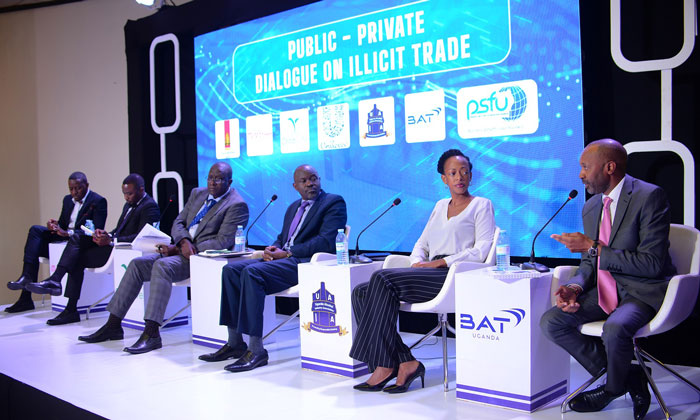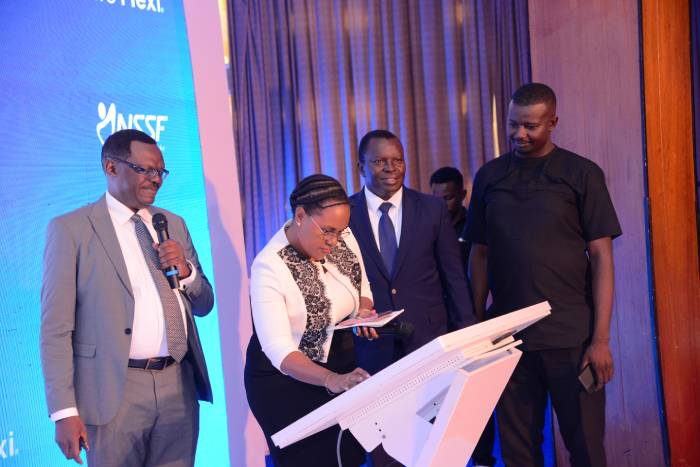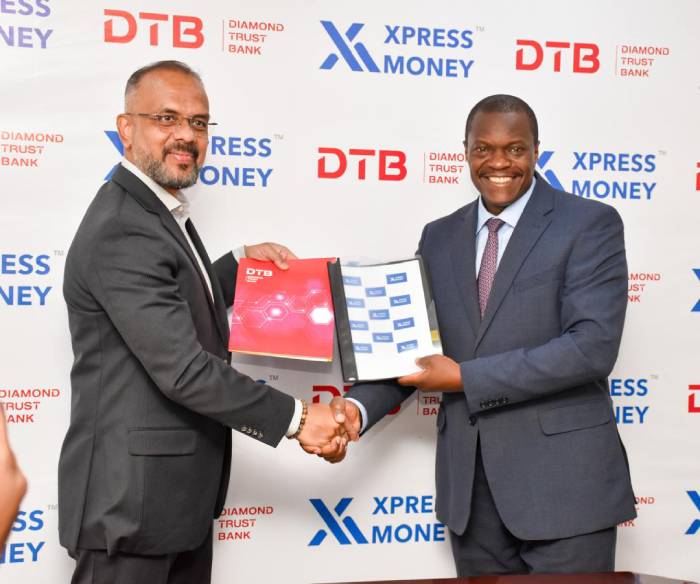Private sector executives move to battle illicit trade
- Business Economy
executivewatch
- March 18, 2023
- 0
- 4 minutes read

Executives sharing their thoughts on illicit trade during a panel discussion held at Serena Hotel in Kampala on March 16. Photo/Executive Watch
Top executives of private sector firms and government have renewed efforts to fighting illicit trade that is costing the country billions of shillings in terms of revenue and human lives.
Speaking at a public – private sector dialogue on illicit trade in Kampala on March 16, stakeholders said they were in high gear to form a technical working group that would draw a detailed plan for each of the stakeholders to battle the illicit trade problem.
Stephen Asiimwe, the executive director at Private Sector Foundation Uganda said, “We need to join hands to fight this problem. It is a danger to all sectors of the economy because it poses unfair competition in trade.”
Asiimwe said, the public private sector mechanism working group is the start of a very long and tough journey that would ensure the fight against illicit trade is real. Asiimwe also said, as the technical working group plans get started, there is need to fight illicit trade right from the local council level upwards – in terms of laws, engagement and awareness.
He also said that the call to action on illicit trade will be part of the agenda for the technical working group. The group will involve members from the private sector, government, consumer associations and more.
David Bahati, the state minister at the Ministry of Trade, Industry and Cooperatives welcomed the idea of forming a technical working group and promised full government support.
“This is time for action not merely talking,” Bahati said, “the problem is alarming that we must fight.”
Bahati described illicit trade as a potential threat to the country’s security, health and the economy in general. Bahati also said, the technical working group will be important when it comes to dialogues aimed at battling the problem. He also said, the renewed effort to fight illicit trade would be aided by the prevailing legal regime and key institutions put in place by the government. He also said that government would allocate more funds to Uganda National Bureau of Standards (UNBS) to partly boost the fight against illicit trade.
David Livingstone Ebiru, the UNBS Executive Director said most of the illicit trade activities happen in the countryside where majority of the population is poor. He said, awareness campaigns must target that group among others. He also said that the harmonization of standards across the EAC market will support the work of the technical working group.
Juliana Kagwa, the corporate affairs director at Uganda Breweries Limited who also doubles as the chairperson of Uganda Alcohol Industry Association said, “We have done research on illicit alcohol and realized that Uganda Revenue Authority is only getting 35% of what they should be getting from the alcohol sector. The government is missing over Shs4trillion in tax in our industry alone.” Beyond Uganda, the Organization for Economic Cooperation and Development (OECD) estimates that EAC loses over US$500million in tax revenue annually due to counterfeiting according to the private sector position paper shared on March 16.
Other participants at the dialogue included, Mathu Kiunjuri, the managing director at BAT Uganda, Solomon Seruwo from CropLife Uganda, Robert Kitenda from Movit Uganda among others.





